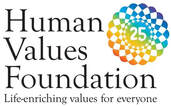|
Time-saving SEE resource for Teachers SOCIAL AND EMOTIONAL EDUCATION (“SEE”) comprises a comprehensive Facilitators’ Manual, together with two volumes of engaging, values-themed Learning Modules that are ideal for PSHE, SMSC and British Values schemes of work. To deepen learning and ensure it is relevant to modern life, the modules are full of illustrative activities, such as:
SEE uses the following familiar teaching techniques to deliver the values:
This experiential learning course is specifically designed to encourage discussion, debate and dialogue about the challenges of life and how best to manage them. A key element of this programme is a FORUM in which students can discuss their emotions and feelings about the lesson’s theme. By doing so, they:
These are all important life skills and qualities for any person to develop, whether they are young or old. Systematic values work not only helps young citizens-in-the-making, because of improvements in their social and emotional skills, thinking processes, decision making, behaviour patterns and achievements but also parents and carers, who also gradually become better able to understand the empowering effects of values and consequently develop more informed, supportive relationships with their children and their schools. To promote the engagement of parents and caregivers, there is a Partnership Learning Units booklet, which can be ordered online THE SIGNIFICANCE OF THE VALUES OF SCHOOL LEADERSHIP TEAMS It is becoming ever clearer that the personal and shared values of each of the members of a School Leadership Team:
Teachers who live their values and vision tend to be good stewards of their own gifts and use them well to inspire their pupils so they in turn learn how to nurture all their own passions, interests and potential. SEE downloads |
